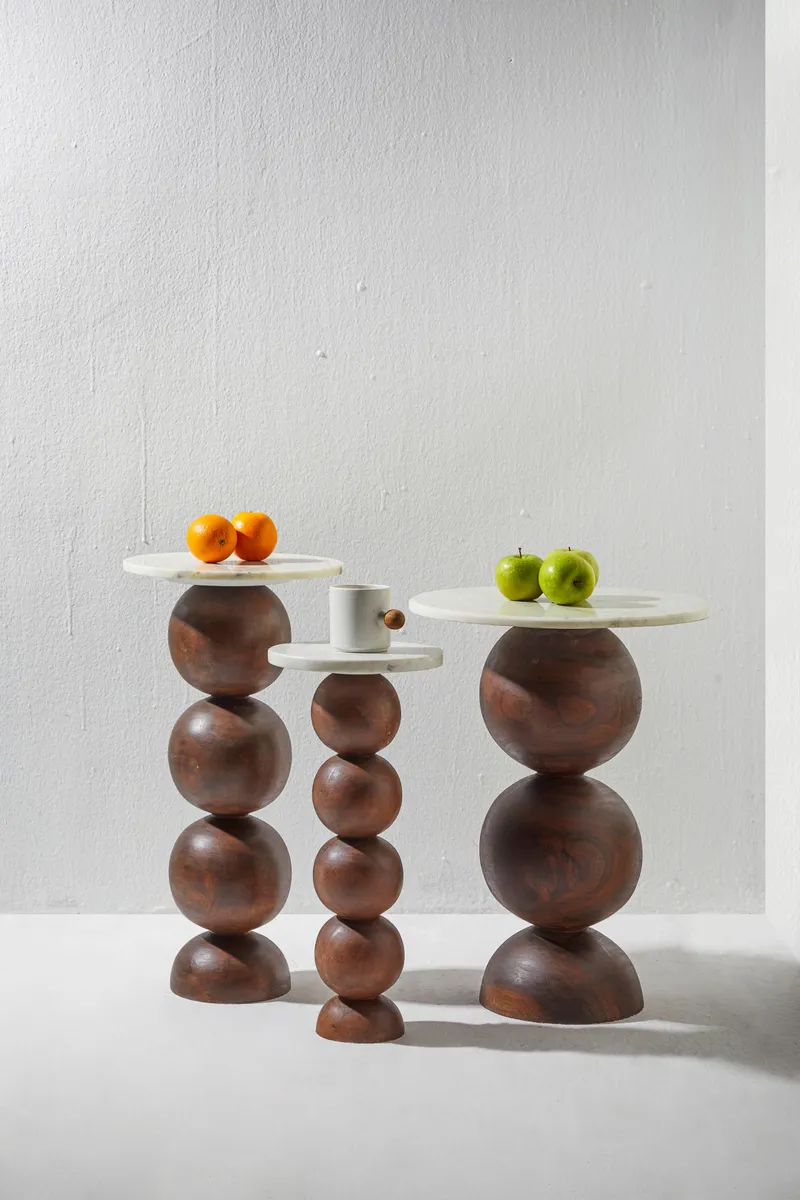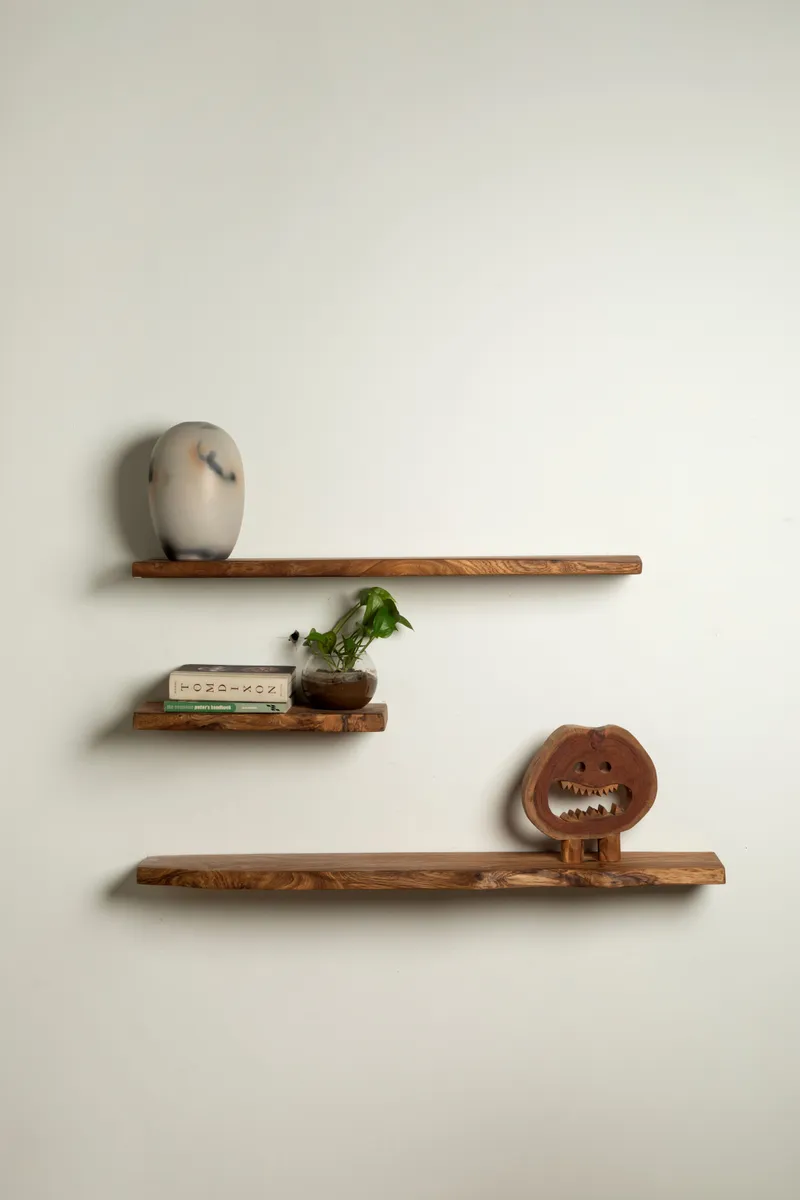Objectry’s luxury products make way to the homes of Malaika Arora, Rhea Kapoor
Inspired by modern structures like the Martyr’s Memorial in Baghdad, Louis Kahn’s creations in Dhaka, and Frank Lloyd Wright’s Mousetrap; founder Aanchal Goel’s pieces combine contemporary art with traditional craft forms.
A home is much more than a roof to live under. It is an extension of the owner’s personality—probably why people are becoming increasingly conscious of how they want to amp up their spaces. With a growing demand for luxury housing in India fuelled by increased disposable income and an enhanced lifestyle, there is also a greater desire to seek decor products that are premium.
Today, there are several brands in the country that offer high-quality decor products that strike a balance between aesthetics and functionality. Objectry is one such name that stands out with its collection of sleek and architecturally aesthetic objects.
Founded in 2015 by Aanchal Goel, the Delhi-based home decor and furniture brand is all about breathing life into everyday objects. In their words, they are not just another brand but ‘an experience’, since each piece is curated specifically for homeowners who are looking to create a personal space that’s modern yet minimalistic.

With its veined marble top and wooden legs, their Ball Pack Nesting Table is a thoughtful addition to any home (Rs 5,750)
Its range includes everything from organisers to kitchenware, stationery items and decorative pieces, with the collection getting a fresh look twice a year.
The brand that prides on its unique form and function has gained the attention of several celebrities, including Rhea Kapoor, Sanya Malhotra, Malaika Arora, Kalki Koechlin, and Mallika Dua, among others.
The inspiration
At Objectry, the pieces are designed in close consultation with Goel, who is also the creative head of the brand. The inception of the brand was a result of Goel’s curiosity regarding form-generation in different materials. During her travels to Europe and the US, Goel realised the lack of thoughtfully designed products and furniture for homes in India.
“The idea is the same now as it was on day one—to bring something new to a market that's slowly learning to accept creativity. As a designer who is adding more things to the planet, I believe there is an opportunity as well as a responsibility to make objects that are new, yet crafted with heart. This was the thought when I decided to create a new visual bank,” Goel tells YS Life.
A graduate from the Symbiosis Institute of Design, Pune, Goel’s idea was to offer simple and clean pieces to patrons—something that was rather unheard of in a country like India that believes in lavish decorations. She focused on using what was necessary: material and function.

These Organic Shelves come in a set of three teak wood shelves with natural organic edges (Rs 14,250)
“Modern structures like the Martyr’s Memorial in Baghdad, Louis Kahn’s creations in Dhaka, and Frank Lloyd Wright’s Mousetrap have always left a deep impression on me. The straightforwardness in their design and how they serve a purpose became a foundation for our studio's work,” admits Goel.
Additionally, her family, which is passionate about design, frequently revamped their house interiors. This practice of reshaping the same space multiple times sparked creativity within her, helping Goel envision new possibilities.
Reimagining home decor
In the initial days, Objectry’s decor label included lifestyle-based small products and small tabletop accessories like mugs, bowls, and lamps. Even today, its decor pieces are a clear reflection of its commitment to Indian craftsmanship—combining contemporary art with traditional craft forms in combinations of wood, ceramic, metalwork and stonework.
To take its offerings a notch higher, Objectry took on a new challenge in 2021. It introduced a line of furniture pieces comprising coffee tables, dining tables, seating, shelves, and more. Today, the brand offers a collection of over 100 pieces of furniture that are nothing short of functional art.
“This year, we’ve launched rugs, candles, and glassware, adding to the mood that only small objects set. I believe my conservative yet experimental personality reflects in the brand that Objectry is. All our collections are carefully designed not to scream for attention—however, once noticed by someone who has a keen eye for aesthetics, they become patrons of everything the brand does henceforth,” adds Goel.
According to her, Objectry dwells between the distinction of looking and seeing. There is a great love for geometry that is translated through oversimplified sketches. This also means looking at the same sketch can mean many things for different people.
“The strange beauty and endless permutations in basic shapes is what I’ve come to understand and enjoy. The conceptual possibilities of a two-dimensional drawing when turned into a three dimensional object is what we lend to our design process regardless of material or technique. What makes Objectry luxurious is also the trait that makes it grounded—the thought in design,” she says.
Luxury at its core
Objectry offers a range of collections based on various shapes and forms, including the Ball, Cone, Classic, Dot, Facet, Parallel Lines, and the One-Off.

The Vintage Dock is an acoustic wooden speaker that can be kept on your bedside to enjoy your favourite music (Rs 3,250)
The brand offers a wide range of products with varying price points. Objectry’s smallest products—the dice pen holder and slant keychain—are available at Rs 350. Other small accessories like mobile holders and measuring tapes are equally economical options to purchase for oneself, or to gift to a friend.
On the other hand, its most expensive creation is a tube bar console, crafted with a handmade fluting on its surface. The cabinet with a classic, matte finish holds everything from glassware and mixers, to accessories to serveware. This is priced at Rs 1,88,100.
The brand has also introduced Terracotta furniture, which is a conscious decision to move away from their signature aesthetics. Inspired by the Japanese aesthetic of Wabi-Sabi, the new range consists of a set of chairs, a coffee table, a book rack, and a mirror.
“We enjoy offering our collection to young couples setting up their home, seasoned material lovers to design students. It’s a range that fits many pockets of appreciators. Our consoles and credenza due to sheerly its size are usually more expensive for its grandeur,” mentions Goel.
Since each of the products by Objectry are created in a variety of materials using different techniques, the intention is always to associate with skilled craftsmen. The making of an object can be anywhere from a day to 20 days, depending on its complexity.
Goel explains with an example, “Products made in wood are chopped, chiselled, reconstructured, polished, and finally packed before they can be dispatched. These simple steps include the natural air-drying process, seasoning in a kiln, and many other simple processes that are unique to the material they’re made out of. A product can have as many as eight to 12 hands before it finds its final home.”
The future
While the brand has a studio in Delhi’s Mehrauli-Gurugram road, Objectry has largely been an ecommerce platform ever since the pandemic. In 2024, it made its debut at India Design ID with a multi-collection that lies somewhere between contradictory materials and nostalgia. The intention to showcase at the platform was to reconnect with its users and share all the new products that the team has worked on over the last few months.
“The new collections were appreciated by diverse age groups and people from different walks of life. In this collection we managed to showcase new entries of materials like rugs, candles, glassware, terrariums etc,” she adds.
In the last few years, Objectry has not focused on co-creating or had any collaborations. However, it plans to change that in 2024 with a bunch of exciting developments in the pipeline.
“It’s too soon to discuss anything else, but we’re looking forward to all that this year has to bring,” concludes Goel.
Edited by Megha Reddy







